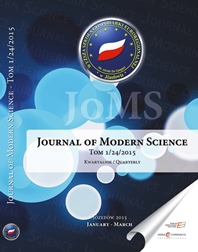The role of the contemporary higher education in the implementation of the euro in Poland.
The role of the contemporary higher education in the implementation of the euro in Poland.
Author(s): Paweł SitekSubject(s): Economy, Education, Higher Education , EU-Approach / EU-Accession / EU-Development, Socio-Economic Research
Published by: Wydawnictwo Akademii Nauk Stosowanych WSGE im. A. De Gasperi w Józefowie
Keywords: the euro zone; economic security; the idea of higher education; the European Union; wise citizenship;
Summary/Abstract: It must be accepted that Poland has used 25 years of political and economic freedom to generate the development of country in many areas. The passage of years has confirmed the stability of Polish and our credibility for investors, which is one of the most important determinants of development. Currently, after the election campaign for the European Parliament, it can be observed, that in Poland, despite the noticeable economic growth, rising the living standards and a numbers of similar circumstances, Polish society falls into irrational contestation, negation and they change the current achievements into the populist and dangerous socio-economic figures. Poland in its stability is a young country and it needs to maintain the exchange course toward stabilization. It is essential,urgent and economically safe for Poland to access to the euro zone. The political factor supporting this idea is exhausted and sometimes in crises. Therefore, it is necessary to give the support to activities that promote the entry into the euro zone. That kind of support should be given by the institution of higher education – colleges and universities with of economic, financial or political profiles, A good example of such activities in that field are action undertaken by the Alcide De Gasperi University of Euroregional Economy in Józefów.
Journal: Journal of Modern Science
- Issue Year: 25/2015
- Issue No: 2
- Page Range: 337-349
- Page Count: 12
- Language: English

